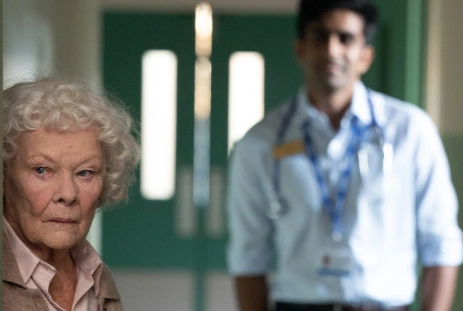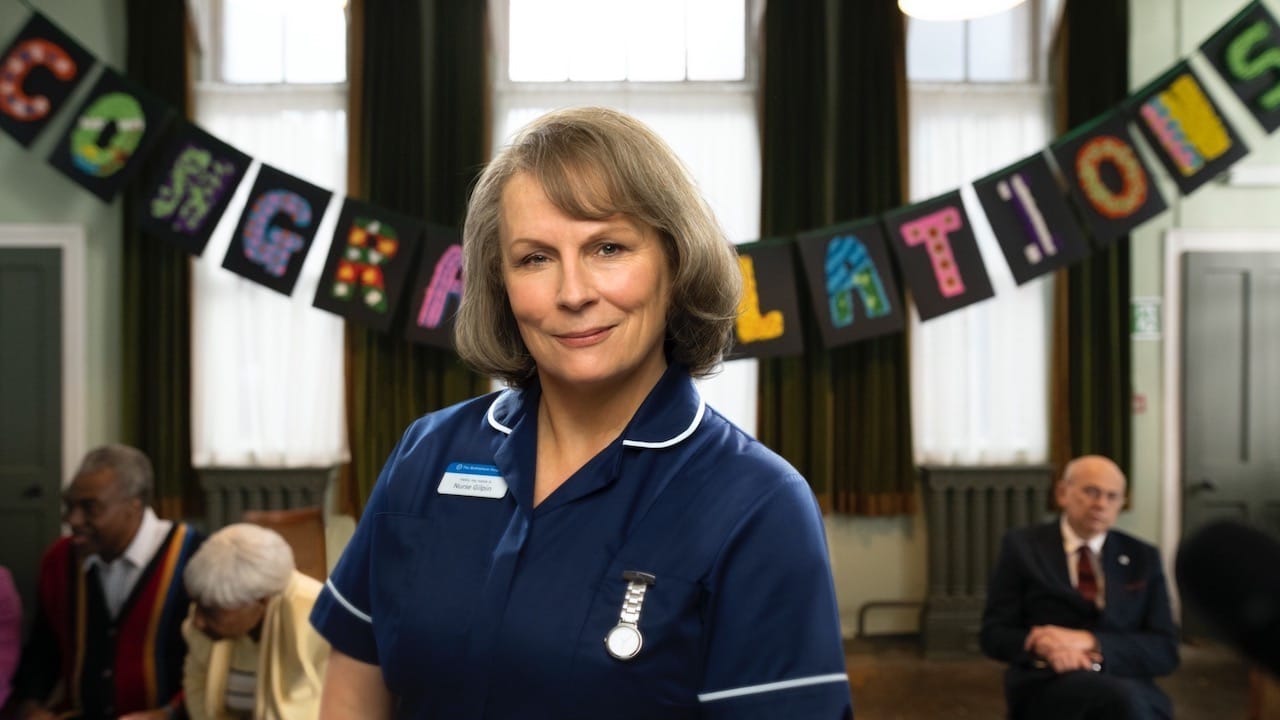Film Review by Khalid Ali, Film and Media Correspondent
‘Allelujah’ (Richard Eyre, UK, 2022) showing at the London Film Festival on 9th and 11th October
Alan Bennett’s 2018 play ‘Allelujah’ was an insightful reflection on the big challenges currently facing the UK: an expanding population of octo and nonagenarians, limited health and social care resources, and a National Health Service (NHS) at breaking point. Patients lying on stretchers in accident and emergency corridors waiting to be admitted to a hospital bed, ‘medically-fit’ mostly older people, referred to as ‘bed blockers’, cannot be discharged because their care packages take forever to be secured, and burnt-out doctors and nurses demanding better working conditions and threatening to go on strike. The NHS, historically renowned for being a world class service and the pride of Britain, is now suffocating following government privatisation plans (https://blogs.bmj.com/medical-humanities/2021/04/13/nhs-in-critical-condition/).

‘Allelujah’ the film adaptation of Alan Bennett’s play, scripted by Heidi Thomas boasts a stellar cast of national treasures of British film, TV, and theatre. Maintaining the dark humorous tone of the play, the film follows a critical week in ‘Bethlehem Hospital‘ or ‘The Beth’ a community hospital in Yorkshire threatened with closure. The hospital motto of providing care ‘’from the cradle to the grave’’ is no longer viable when the government’s focus is on building ‘specialist centres of excellence’. Funding decisions about ‘The Beth’ and its future are brutally made by London ministers whose priorities are profit and economic gain, an agenda that is not typically associated with ‘compassionate geriatrics care’. The hospital staff, its chairman, a group of volunteers, and a colourful mixture of older patients are campaigning to keep their beloved ‘Beth’ open. A camera crew from the local TV station is filming their attempts to generate wider support.
Among the hospital patients, we see several personalities of senior citizens; the loner Mary (Judi Dench) (figure 1), a retired librarian, who prefers to be invisible observing in silence the trials of tribulations of her fellow patients, Ambrose (Derek Jacobi) who can’t wait to die lamenting the fact that life is clinging its ugly jaws on him, and Joe (David Bradley) who wants to stay in hospital for as long as he could to avoid being discharged to a care home he hates. The common factor that links these unfortunate souls is that they all lost their dignity and identity. Sister Gilpin (Jennifer Saunders) (figure 2) is the assertive manager who runs the Geriatrics ward with an iron fist. For nurse Gilpin, patients’ inactivity is laziness, incontinence is a curse that immediately places them in her ‘blacklist’. The geriatric giants of immobility, instability, incontinence, and intellectual impairment, a term coined by Professor Bernard Issacs (Isaacs B. An Introduction to Geriatrics: London: Baillière: Tindall & Cassell; 1965), are all seriously penalised by the strict Gilpin. Her pragmatic, unflinching attitude is the only way to meet hospital targets, namely creating empty beds to admit new patients from the neighbouring acute hospital. Doctor Valentine (Bally Gill) is the kind empathetic doctor who champions his patients’ fight to keep the ‘Beth’. He argues that a ‘hospital bed’ is much more than a bed; it signifies a patient as well as a whole load of doctors from different specialties, nurses, therapists, and assistants all working together to improve a patient’s hospital experience. Sister Gilpin vehemently disagrees: ‘’a hospital should function like a bowel pumping out excretions’’; in her opinion the waste products happen to be older folk. In her role as a nurse, she is only doing a ‘job’ that others don’t want to do.
The prevalent hostile attitude of society towards older people is exemplified by Mrs Maudsley’s story of abuse (Eileen Davis), a frail woman whose daughter and son-in-law are scheming to take over her home. Ambrose echoes society’s sentiment saying: ‘’no one likes old people; even old people don’t like old people’’.

Occasionally the film uses a direct approach with sentimental overtones; however, it still delivers in exposing a system and a society where caring for the frail generations is not a priority anymore. If there is a note of hope it comes from ‘Allelujah’ ringing alarm bells for each one of us that discriminating against old age will not be tolerated and will be challenged by the rare few like Dr Valentine.